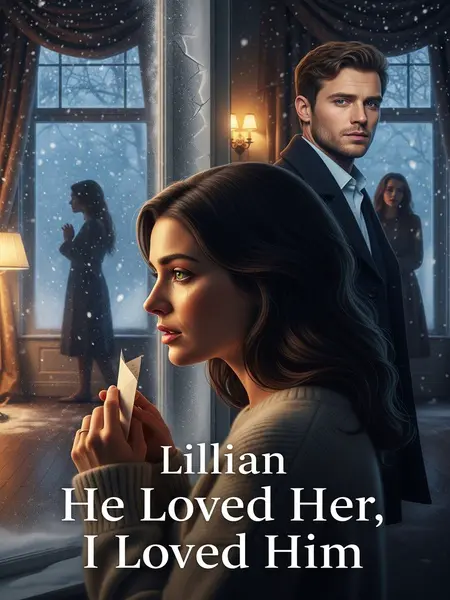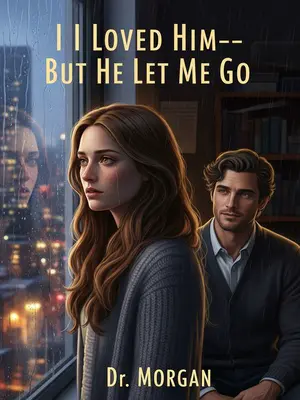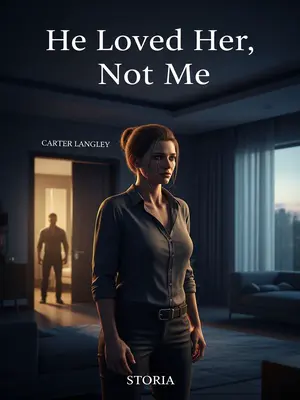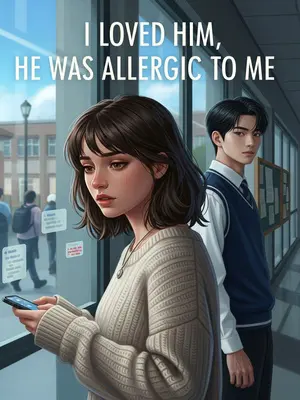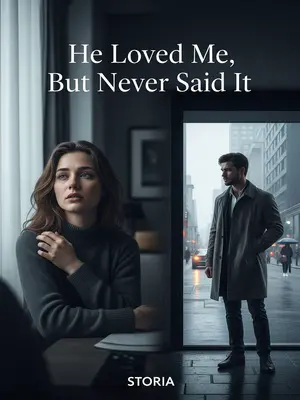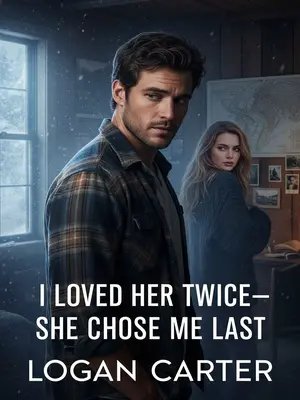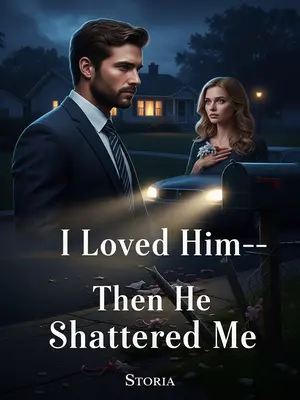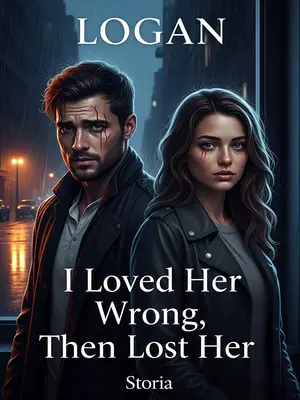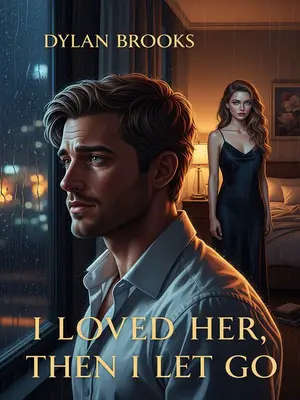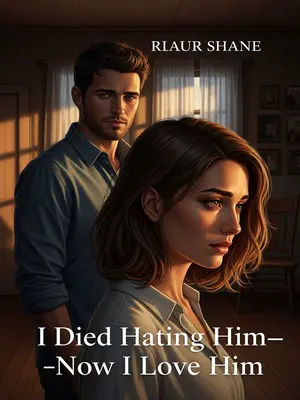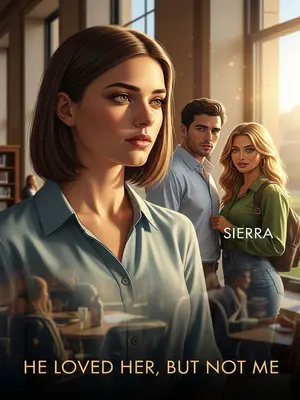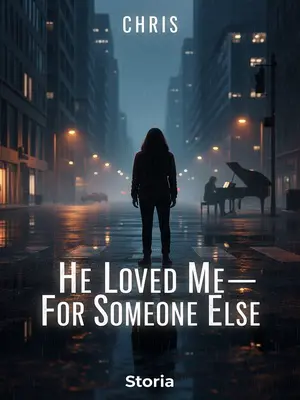Chapter 1: The Wife He Never Chose
I was raised by the Whitmores since I was little, meant to be their future daughter-in-law.
Even as a little girl, I remember clinging to Mrs. Whitmore’s skirt at Sunday barbecues, always watching Harrison from across the yard. Their world felt warm and bustling—trips to the lake in summer, laughter echoing through the house at Thanksgiving. At first, I always felt like the outsider. But, little by little, they made me one of their own. There was always an unspoken understanding: someday, I’d be Harrison’s wife. It was as if my life’s path had been mapped out in quiet, loving detail, long before I ever understood what it meant.
At twenty-one, after a drunken night, Harrison Whitmore and I ended up together. So, of course, he married me.
I still remember the way the morning sun streamed through the window that day, glinting off his tousled hair as he lay beside me. There was no grand proposal—just a matter-of-fact conversation over coffee, his voice steady, almost businesslike: “We’ll do the courthouse this Friday.” I nodded, heart pounding, thinking this was the start of forever. It felt so certain, so American—no fuss, just a signature and a promise, like we were simply stepping into roles everyone expected of us. Was this what happiness looked like? I told myself it was.
Back then, I was too caught up in the joy of finally having my long-held wish come true.
I floated through those first weeks on a cloud of hope, convincing myself that love could grow in the quiet spaces between us. Every little gesture—a hand on my back, a shared laugh over takeout—felt monumental. I didn’t question the silences. Or the way he sometimes looked past me, lost in thought. I was too busy basking in the glow of a dream fulfilled, blind to any cracks in the foundation.
I had no idea there was already someone else in his heart.
Looking back, I realize how naive I was. God, I was clueless. There were subtle hints—an old playlist he never let me hear, a photograph tucked away in his wallet, the way he’d sometimes disappear for hours with no explanation. But I brushed it all aside, convinced that love was enough, that history could be rewritten if I just tried hard enough.
In the third year of our marriage, that woman—Julia Lin—suddenly returned from abroad.
It was all anyone in town could talk about. Julia Lin, the one who got away, was back from Paris. Her name slipped into conversations at dinner parties, her laughter echoing down the halls of old friends’ houses. I’d never met her, but I could feel her presence, like a cold draft through a window I couldn’t quite close.
That day, Harrison cut his hair, put on a crisp new shirt, and didn’t come home all night.
I watched him in the mirror as he buttoned up, his movements uncharacteristically careful. He wore cologne he hadn’t touched in years, and when he left, he didn’t look back. The snow started falling just after sunset, thick and silent, blanketing the world in white. I waited, staring at the clock, telling myself he’d be home soon. But midnight came and went, and I was left listening to the wind howl outside, alone in a house that suddenly felt too big.
And I was left behind, forgotten by him in a swirling snowstorm.
The loneliness settled in my bones. Colder than the winter air. Heavier, somehow. I pressed my forehead to the frosted window, watching the flakes pile up on the porch. Every car that passed made my heart leap, but none of them stopped. In that endless, sleepless night, I realized what it meant to be truly forgotten.
…
Harrison came home early the next morning.
He slipped in quietly, like a man with something to hide. Like he was hoping I wouldn't notice. As if. The house was still and silent, the only sound the faint hum of the heater. He paused in the foyer, listening for any sign of me, but I was already gone from our bedroom, my side of the bed cold. He hesitated, then headed straight for his study, as if he needed the comfort of familiar walls.
Everything in the study was as it always had been, except now there was a photo and a sheet of paper on the desk.
He noticed right away—the small changes, the subtle shift in the air. The scent of my perfume lingered, a gentle reminder that I’d been there. The photo caught his eye immediately, lying next to a single, folded sheet of paper. The room felt different, charged with something he couldn’t name.
The photo was a gift from Julia years ago. On the back, he had written: “I think of you, I miss you, never forgotten, not even for a night.”
He picked it up with trembling fingers, tracing the faded handwriting. The words seemed to echo in the quiet, a ghost of longing that had never quite faded. The photograph itself was worn at the edges, a testament to how many times he’d held it, looked at it, remembered.
Next to it, on the white paper, was my handwriting. Steady. Unmistakable:
“Harrison, I’ll let you go.”
The words were simple, but they hit him like a punch to the gut. The loops and curves of my script were unmistakable—steady, composed, but full of finality. There was nothing else, no accusation, no plea. Just the freedom he’d always wanted, handed to him in ink.
The snow was falling so heavily, like cotton ripped apart and flung across the sky. I stared at the whiteout, numb. Was I really free now?
I stood under the eaves at the cemetery gate and took out my phone.
The world was muffled and white, the gravestones half-buried beneath drifts. My breath curled in the air, the cold biting at my cheeks. I pulled my coat tighter, feeling utterly alone, the weight of the day pressing down on me. The cemetery was quiet except for the soft crunch of my boots on the frozen ground.
One more time, I dialed Harrison’s number.
My gloved fingers fumbled with the phone, nerves frayed by the cold and by hope I barely dared to feel. Each ring sounded impossibly loud in the hush, like a lifeline stretched thin.
It rang for a few seconds before someone hung up.
The abrupt silence left me hollow. I stared at the screen, the words "Call Ended" blurring as my eyes filled with tears. I wanted to scream, but the sound died in my throat. The snow kept falling, indifferent to my pain.
I stood there in a daze. What now?
Time seemed to stretch and warp. My hands went numb, but I couldn’t move. I felt invisible, as if the world had turned its back on me. The ache inside was sharp, a reminder that I was truly on my own.
Snowflakes, swept by the wind, slapped against my face, cold to the bone.
Each flake stung, the wind cutting through my layers. I tasted salt on my lips—tears or snow, I couldn’t tell. The world blurred at the edges, white and endless, swallowing every trace of warmth.
When he dropped me off, he promised he’d be back before the snow got bad.
He’d even promised, voice softer than usual, that he wouldn’t let me wait in the cold. It was the kind of thing he rarely said, and I’d clung to it like a lifeline. Now, the memory felt cruel, twisting in my chest.
But now, the snow was already coming down.
The flakes came down faster, erasing footprints, hiding the road. I watched the sky, hoping for a break in the storm, but there was nothing but gray above me. My hope faded with the daylight.
The mountain road wound deep into the hills, but there was still no sign of him. Nothing. Just silence.
I strained to hear the sound of an engine, to see headlights through the trees. Nothing. The silence pressed in, heavy and absolute. I felt small, abandoned, as if the world itself had forgotten me.
“Ma’am, if you don’t head down now, it’ll be too late.”
I jumped. Didn’t even hear him coming. The caretaker’s voice startled me. He was bundled up in an old parka, his cheeks red from the cold, worry etched deep in his brow. He looked at me the way people look at strays—sympathetic, but eager to move on.
“When the snow seals the road, no cars will be able to get in or out.”
His words brought a new kind of fear. I glanced at the winding road, already slick and treacherous. The thought of being stranded here all night made my heart race. I nodded, swallowing hard, but couldn’t bring myself to leave just yet.
The caretaker came out, rubbing his hands, worry etched on his face.
He glanced at his watch, then back at me, shuffling from foot to foot. "Ma’am, it’s really coming down. I can give you a lift, but we gotta go now."
I pressed my lips together and dialed a third time.
Desperation. My hands shook. I could barely feel my fingers, but I hit redial, praying he’d answer. Each ring was a plea, a silent scream for him to remember me, to care just enough.
The phone rang and rang, and just as it was about to cut off, someone finally answered.
Relief flooded me, warming my frozen limbs. I pressed the phone to my ear, hope rising in my chest. Maybe, just maybe, he’d come for me after all.
A warmth bloomed in my chest. Then, just as quickly, a sharp pang of hurt.
“Harrison…”
But the voice in my frozen ear wasn’t Harrison’s.
It was a soft, unfamiliar female voice.
“Hello, are you looking for Harrison? He’s not available to take calls right now.”
Her words were soft, almost apologetic, but they cut deeper than any blade. I recognized the undertone—a woman’s possessiveness, a subtle claim. My heart plummeted, the hope inside me snuffed out in an instant.
A buzzing filled my ears, like all the blood in my body had rushed to my head.
The world spun, the ground tilting beneath me. Everything tilted. I gripped the iron gate to steady myself, the cold biting into my palm. My mind raced, replaying every moment, every warning sign I’d ignored.
That morning, Harrison suddenly put on a white shirt he hardly ever wore.
He’d stood in front of the mirror, fussing with his collar, a look of anticipation on his face. I’d watched him from the doorway, wondering who he was trying to impress. Now, the answer was painfully clear.
But then he’d chosen an old tie, one that had long since gone out of style.
The tie was faded, its pattern dated—a relic from another time. I’d never seen him wear it before, but he’d chosen it carefully, as if it meant something. I realize now it must have held a memory I was never part of.
When he came home at noon to take me to the cemetery, I noticed he’d had his hair cut and looked more energetic than usual, in a surprisingly good mood.
He was almost cheerful, his eyes brighter than I’d seen in months. Like he was finally free. He moved with a lightness that didn’t belong to me. I’d tried to match his mood, to hold onto the fragile peace, but it felt like I was reaching for something that was already gone.
He was always so calm and reserved, but today, he seemed a little softer.
He even smiled at me—a real smile, not the polite, distant one I’d grown used to. It was enough to make me hope again, foolishly. I told myself things were changing, that maybe he was finally coming back to me.
For once, he’d even helped me tie my scarf before we went out.
His hands lingered at my neck. Gentle. Careful. Almost like he cared. I caught his eyes in the mirror, searching for something, anything, that would tell me he still cared. But he looked away too quickly, the moment slipping through my fingers.
In three years of marriage, moments like this between us were rare.
We’d always been polite, careful not to cross invisible boundaries. That small gesture felt monumental, a flicker of the intimacy I’d always craved. I clung to it, desperate for meaning.
I couldn’t make a sound, just stared blankly at the thickening snow.
The world faded, my thoughts turning inward. I felt numb, the cold outside nothing compared to the emptiness inside me. I wanted to cry, to scream, but all I could do was stand there, silent and still.
That voice again, soft and patient: “Hello? Are you still there?”
Her tone was patient, almost kind, but it grated on me. I tried to find my voice, to say something, anything, but the words wouldn’t come. I was frozen, trapped in a moment I couldn’t escape.
“Hello, did you dial the wrong number?”
“What a strange person…”
She murmured softly, then hung up.
The line went dead, leaving me with nothing but the howling wind. I stared at my phone, wishing I could erase the last few minutes. But the truth was clear, undeniable. I was alone.
I slipped the caretaker some cash.
He accepted it with a grateful nod, his eyes full of concern. "I’ll get the truck warmed up," he said, voice gentle. I followed him, boots crunching through the snow, feeling like I was walking away from more than just a cemetery.
He drove me down the mountain in his old pickup truck.
The cab was warm, the radio crackling with static and country music. Country music, of course. We didn’t talk much—just the occasional comment about the weather, the road conditions. I stared out the window, watching the snow swirl past, my thoughts a tangled mess.
By the time I got back to Maple Heights, it was late at night.
The house was dark, the porch light glowing like a distant beacon. I let myself in quietly, the familiar creak of the door echoing through the empty halls. The snow muffled every sound, making the house feel even more isolated.
That was the house Harrison and I moved into after we married.
Maple Heights had always felt like a fresh start—a place to build a life together. I’d decorated every room, filled the kitchen with laughter and the living room with music. But tonight, it felt like a museum of broken promises, each corner haunted by what might have been.
When it snowed, it was especially peaceful and beautiful.
The world outside was transformed, soft and quiet, the trees heavy with white. I used to love these nights, curled up by the fire with a book, Harrison’s arm draped over my shoulders. Now, the silence pressed in, thick and suffocating.
